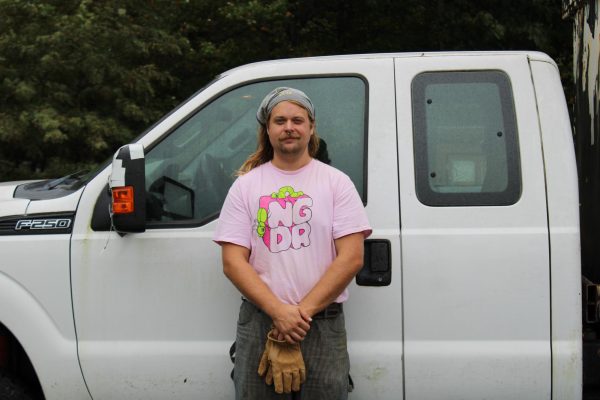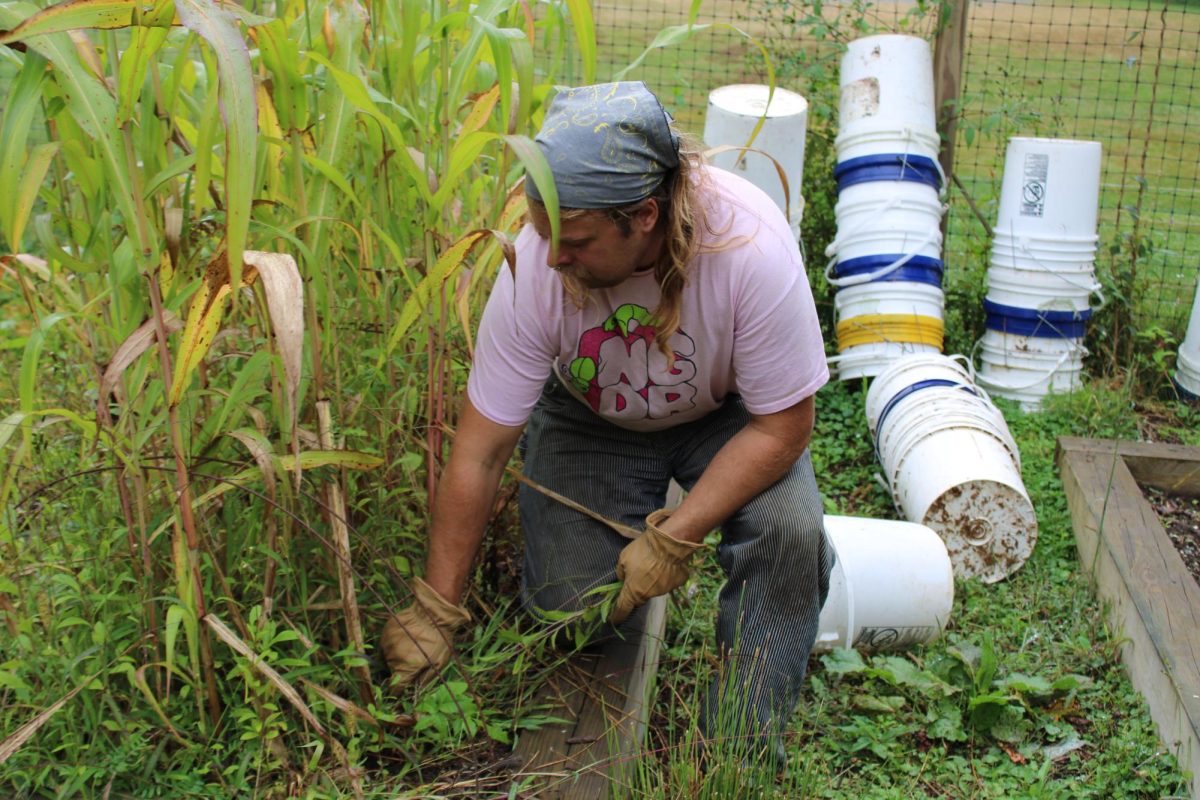In the fight for a cleaner, greener Earth, Born Again Dirt Composting, also referred to as BAD, leads the charge in Boone. BAD is a cooperative organization that aims to help the growth of local plant life by improving the soil with nutrient-rich organic compost in various gardens across Boone.
Ballard Reynolds, the composting head, defines compost as the action of returning organic matter to the soil. This can help give seeds and plant life vital nutrients to grow stronger and healthier. Any paper material including cardboard, as long as it doesn’t have any plastic coating or too thick of a wax lining on it can be utilized for compost.
“Any fruit or any other food you may eat can be composted one way or another,” Reynolds said.
BAD delivers five-gallon buckets to members across Boone for them to dispose of and collect the accumulated compost. Every two weeks, Reynolds goes to pick up the compost provided by the members.
As this compost ages, it is later delivered to various gardens around Boone with their main garden and headquarters located at Boone United Methodist Church, which Reynolds tends to themself. With the help of Boone United Methodist Church BAD grows a variety of produce including peppers, cabbages, tomatoes, sorghum, mint, daisies, ironweed, goldenrod, strawberries, carrots, beets, radishes, bok choy, garlic, onions, as well as various herbs planned for next year.

All these crops are later donated to Boone United Methodist Church where the kitchens cook and serve free dinners on Thursdays. BAD also sells their compost to local gardeners as well as various community gardens. However, compost can be a delicate process and if it becomes polluted, it can very negatively affect the surrounding soil and plant life.
“Most compostable plastics, because branding and labeling aren’t uniformly regulated, you have to figure it out, a lot of companies will say compostable but still have to go through a chemical process,” Reynolds said.
Compost can become unsuitable if pollutants such as batteries, acids and metals tamper with the compost.
Ellen Riddle, residential head and App State alum, is in charge of deliveries and distribution of five-gallon buckets to members. She also organizes volunteer programs to collect compost locally.
Every Tuesday BAD can be found at the King Street Farmers’ Market, where you can find Riddle there to answer questions as well as help spread awareness of their mission.
In 2022, they had a location to store excess compost in Deep Gap, however, once they began running out of room as commercial compost pickup began to increase, this led to the idea of being able to sell compost. This posed challenges as the North Carolina Department of Agriculture has very strict protocols, Riddle said.
“We really wanted to sell it a few years ago,” Riddle said.
It took time as they had to buy expensive equipment like thermometers and other compost trackers.
Riddle said someone had to make sure the compost was not stored on a floodplain so runoff and other contaminants from other farms could not pollute the compost. A friend of the company recently gave BAD the rights to some land. They let BAD dump mulch as well as compost there. The acquisition of this land has helped the company balance their intake of compost with the distribution allowing for more compost to be picked up.
Today, BAD collects compost from various restaurants like The Cardinal, Fizz Ed, Hatchet, Proper and FARM Cafe. The expansion of BAD has led to interest from Riddle to someday collaborate with the composting efforts at App State.
Riddle recalls finding forks and other contaminants in the compost they collect from the State Farm athletic fields indicating little maintenance has been done to App States compost.
“I wish they would hire us to take over that. We would love to take care of their compost, it eeks me every time I think about it,” Riddle said.

